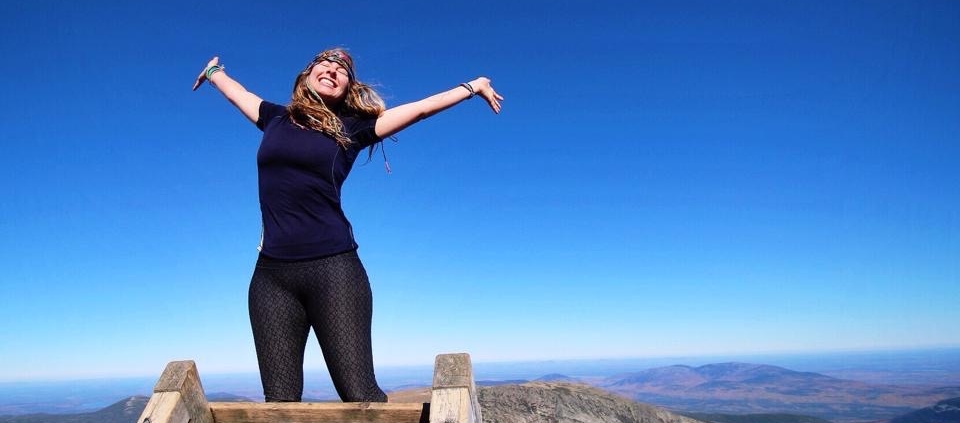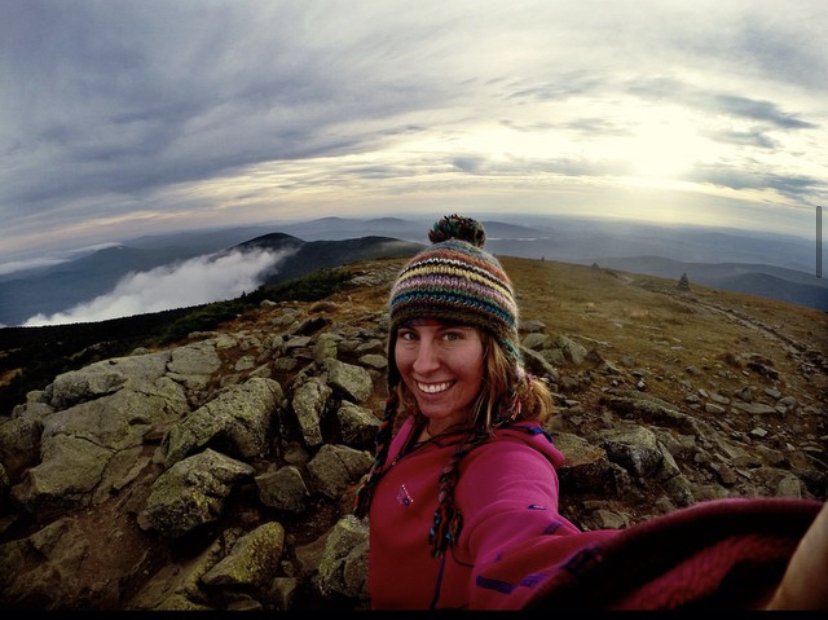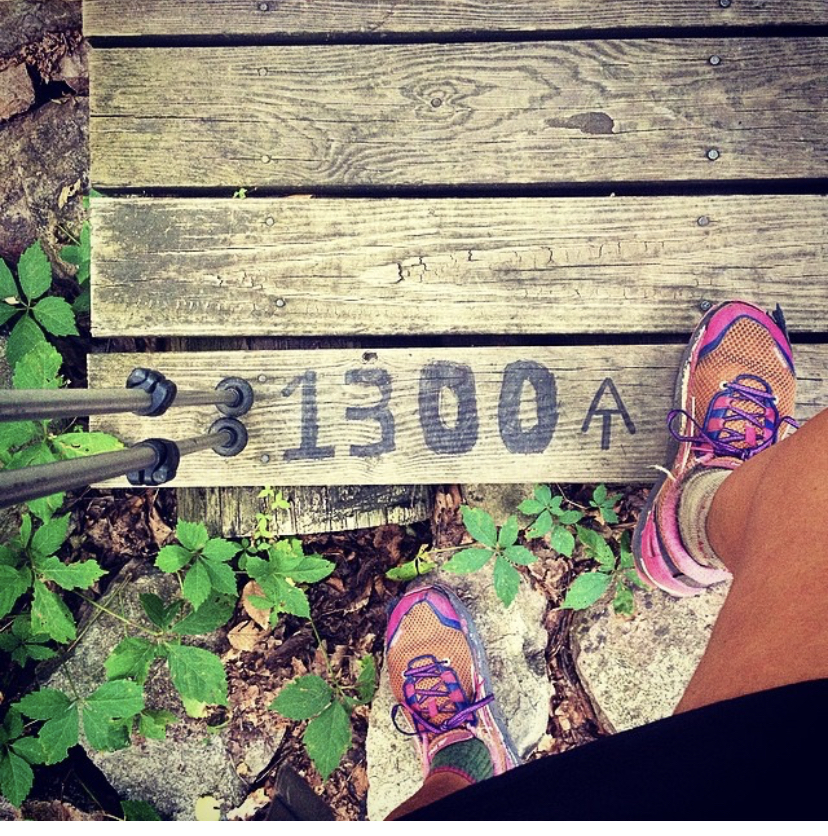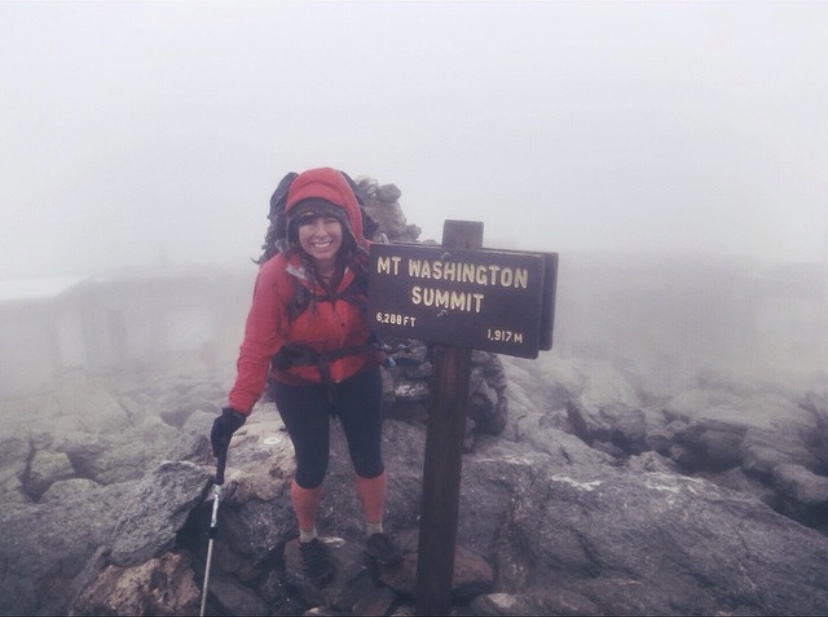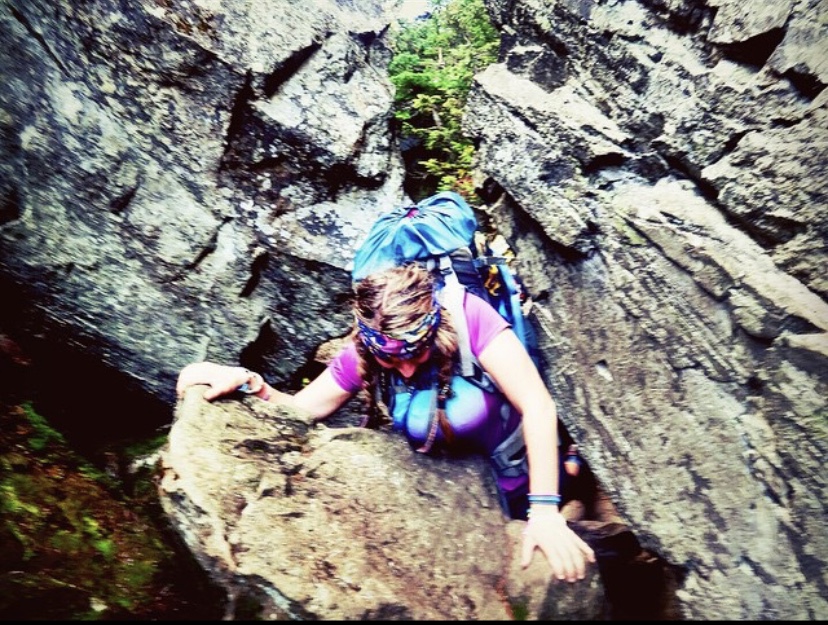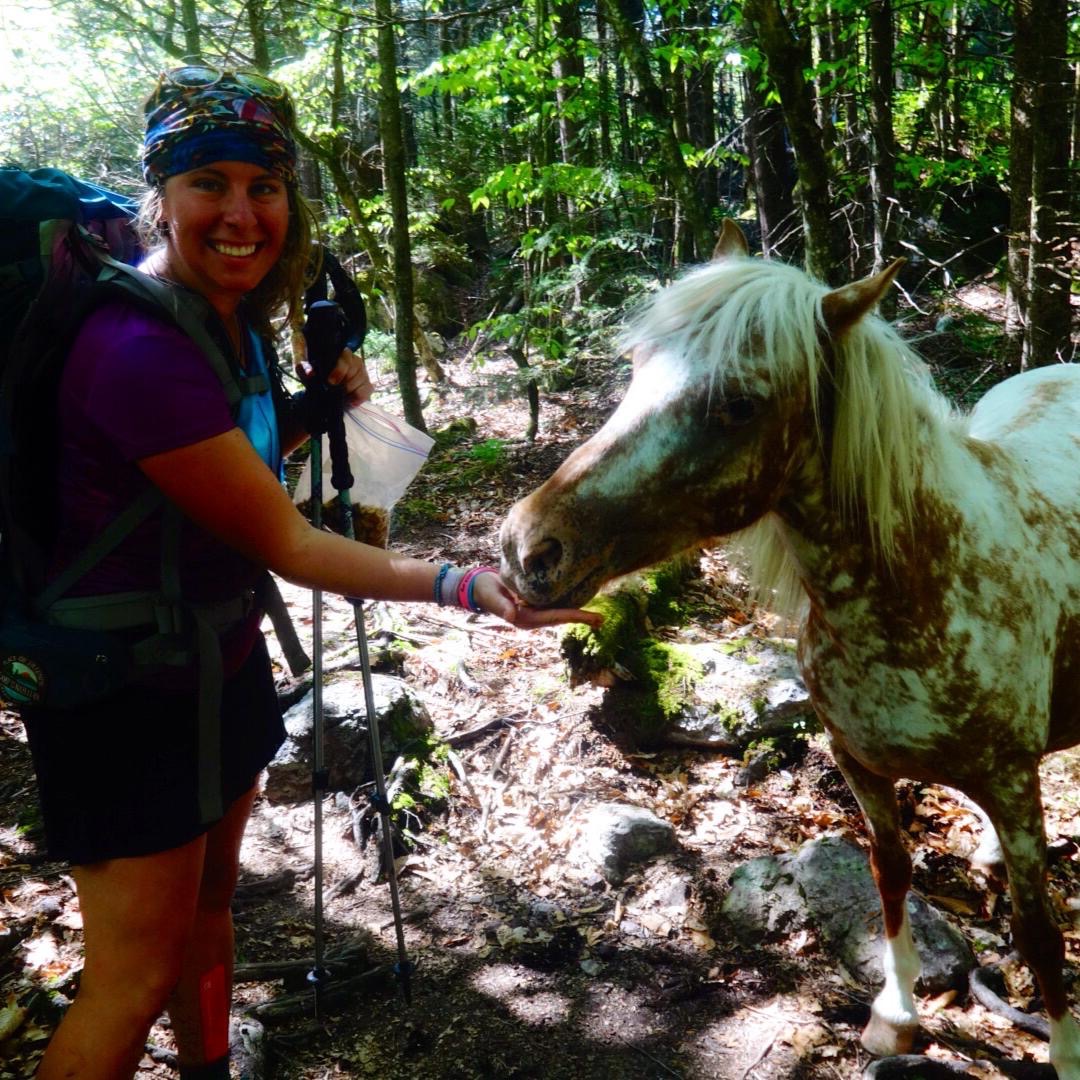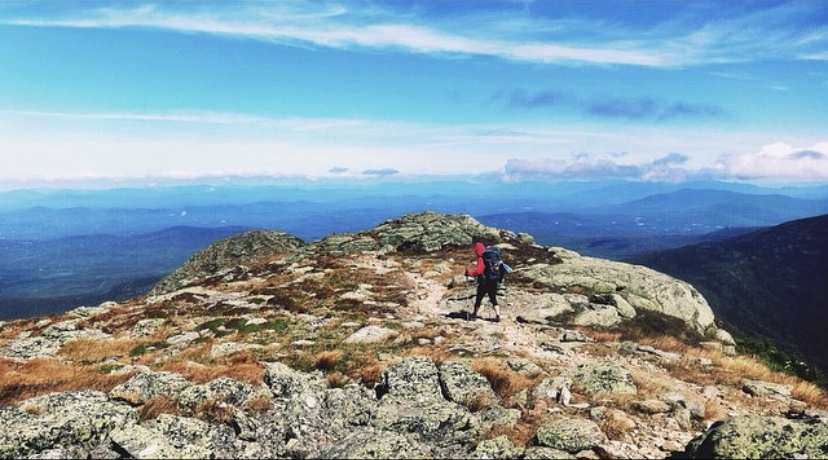Life Skills Learned from my Appalachian Trail Thru-Hike
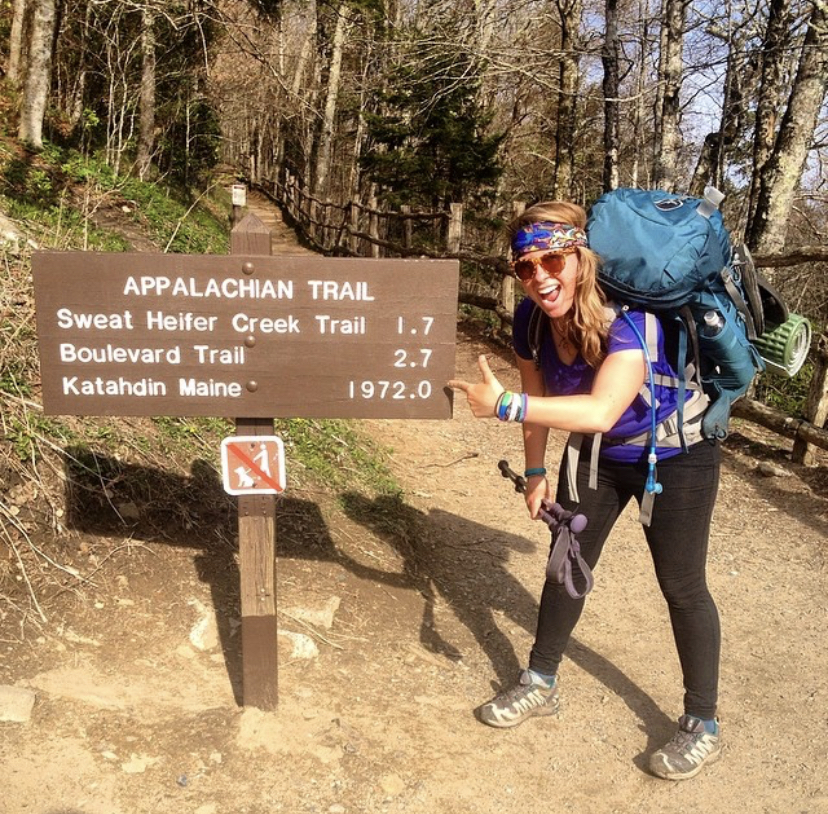
Five years ago, I set out to hike the Appalachian Trail. It was a strenuous journey, and every day brought new challenges: finding water; eating and carrying enough food; persevering through the extreme weather; and pushing up and climbing down mountain after mountain. My expectations of having a unique adventure, physical challenges, and new experiences actually resulted in so much more: I realized that I learned and improved skills that have set me up for success in many aspects of life. I still draw from my experiences today as I navigate new challenges, jobs, responsibilities, and relationships in my life.
Remarkably, one does not need to fully live in the woods and carve out months of their time in order to gain these skills. As a trip leader at Adventure Treks, I see our students building the same skills I’ve learned—perhaps even more powerfully because of their age. Backpacking at Adventure Treks is a profound experience and one that impacts our students many years beyond their trip. I believe the following four life skills illustrate what students learn on a backpack trip and how they translate to life outside the trail.
You are capable of more than you realize
The inkling of doubt that emerges from reading the statistics of the Appalachian Trail is no different than the doubt students have at the start of their first (or even fifth) Adventure Treks backpack. The weight of the food and gear in your pack, the difficult and varied terrain ahead, uncertainty in their abilities both physically and mentally—they wonder if they can actually do this for four, five, or six days.
We see it all the time: Teenagers are capable of so much more than they know. It’s not unusual for us to hear about students joining a new club, applying for a job, reading several new books, signing up for a new sport—going out on a limb and trying something completely new—after arriving home from Adventure Treks. Remember: You are stronger and more capable than you give yourself credit for. When in doubt, go backpacking to see what you can accomplish.
Nothing teaches you the importance of adaptability better than spending a week backpacking with your friends. So much time, thought, and effort goes into planning the logistics of a backpacking trip—but maps, itineraries, and first aid kits can’t predict the weather, trail conditions, broken gear, or wildlife… nor can proper planning account for the people in your group (like unexpected illness, blisters, or attitude).
In the White Mountains of New Hampshire—a notoriously rugged, steep, and most difficult 100-mile stretch of the trail—sits Mt. Washington. This 6,288-foot mountain has the most erratic and dangerous weather in the world. As I hiked through the Whites, drawing closer to Mt. Washington, I was filled with both anxiousness and excitement. I had packed extra food in case the days were harder or the weather was bad and I needed to camp extra nights. I had also planned to pick up my winter clothes at a post office in a nearby town; but though I had mailed the box prior to starting my thru-hike, it hadn’t arrived. Instead, I was stuck with my summer clothes in late September—on the coldest section of the entire trail. On those 35-degree nights, I wore every single one of my layers, and my hunger had spiked while the temps plummeted… meaning my food supply wouldn’t last as long as I’d thought.
Adaptability is essential
Mt. Washington was a day away, and I had enough food to get me to a town on the other side where I could resupply. However, temps were dropping even more and a big snow was expected. If I didn’t push it hard, I would have no food or warm clothes to sustain myself. The morning I needed to summit I woke up extra early to get a head start on the storm. The clouds were dark and ominous, and the skies opened during the one-mile hike to the summit. The rain started turning to ice, and visibility was near zero. The rocks were so slippery that I moved more slowly than I wanted… I needed to get over this mountain to avoid the gathering storm. I put my head down and walked into the strongest winds I’d ever felt; you’d pick up your leg to take a step, and the winds would turn my entire body. Pushing through that cold, hunger, and physical and mental exhaustion is one of the most difficult things I’ve ever done, and summiting Mt. Washington was a truly epic feeling.
Can you imagine wearing only a T-shirt, capris, and lightweight rain jacket, with rime ice building on your hood and hair and temperatures in the 20s (but howling wind dropping it near zero)?! Neither could I, until it happened—because my planning had gone awry. I often reflect on this when I am doubting my capabilities to continue something. Backpacking teaches you that you can only control your thoughts and actions. And only you can control how you respond to often challenging situations. There is freedom to be found if focus on adapting to different situations, and a positive attitude goes hand-in-hand with this release of control. You can apply this to any aspect of life for greater adaptability and resilience. Life is not always comfortable, and it will throw challenges our way. When this happens, you have the power to make a choice on how you’ll react: sometimes we have to shoulder the burden, or stay positive, or accept the situation as it is. Backpacking teaches us to learn from things in your life that don’t go as planned, and it’s a skill that will serve you in many situations.
Resilience and managing failure
Perhaps most obviously, backpacking teaches resilience. It’s essential to plan and prepare for a backpacking trip, just as we would for a vacation or school project. However, you can almost guarantee that even with the best-laid plans, something will go awry. That’s inevitable with the outdoors (and in life in general).
For example: One week during my thru-hike, the weather forecast looked pleasant and called for sun and mild temperatures. It was completely wrong—it rained almost the entire week. I slogged along the trail underneath a rain jacket and in waterproof boots, not exactly having a blast, but I persevered. I arrived at my campsite and found it completely flooded—there was no place to pitch my tent or set up a kitchen. With the continued rain, it was more dangerous to stay than it was to turn around and make a new plan.
I didn’t meet my intended goal of miles that day—did I consider that a failure? I might have thought so at that moment, but time taught me that I responded well to the situation: I formulated a new plan on the fly and had to hike extra miles in another direction, without having eaten dinner. But I did it, and I felt strong when I reflected on this “failure” a few days later.
This happens at AT all the time. Perhaps an unexpected front blows in, bringing rain or chilly temperatures with it. Perhaps the mosquitoes were much worse than the previous year. Perhaps we miss a turn and hike a mile uphill in the wrong direction. Perhaps someone lost a boot overnight (trust us, this has happened). This teaches us to ask questions, like “Could we have brought additional gear?” “Did we look at the right map?” We learn from mistakes or unexpected situations (the “failures”), and we move on. There aren’t many skills in life better to have than resilience.
Be present
One of the biggest surprise outcomes of backpacking is the liberation that comes with being unplugged—away from cell phones, laptops, “likes and snaps streaks,” Netflix, and the instant gratification that comes with all media. The mind fog lifts, making way for clarity and the ability to observe and appreciate small details. The drama of the world around you seems to vanish as you notice the shape of a leaf, the sound of running water, the taste of warm mac and cheese, and the deep belly laughs induced during a game of cards around a campfire. You understand what Ralph Waldo Emerson meant when he wrote, “To finish the moment, to find the journey’s end in every step of the road, to live the greatest number of good hours, is wisdom.”
Each step you take, each relationship you build, each experience you have—these moments teach you to slow down and stay present. There’s no need to always rush, even when the world moves at a breakneck speed around you. As Adventure Treks instructors, we try to model appreciating every moment we’re in, for whatever it’s worth, without expectation or impatience. This skill is truly valuable at any moment in life.
As I summited Mt. Katahdin, reaching the apex of my five and a half months on the AT, I felt a release of emotions: proud, relief, joy, scared of the future, ready for a real bed and running water, and a feeling that I could absolutely do anything I set out to do. Completing my thru-hike is, to this day, one of the best feelings of true accomplishment I’ve had. Unfortunately, that level of confidence fades over time as we are exposed to the pressures and reality of society. But when that feeling of confidence and accomplishment comes back, it’s always when I’m outside: When I’m hiking in the Talkeetnas in Alaska with fourth-year AT students, or when I’m playing mafia or camouflage with first-year AT students in Rocky Mountain National Park. The best part? I’m not the only one celebrating triumphs. So are our students.
At Adventure Treks, each backpacking experience is unique to each student. However, each of these lessons we learn from are easily transferable to everyone’s daily lives. I regularly reflect on the struggles, fatigue, goofiness, and beauty of my time thru-hiking the Appalachian Trail. I’ve hiked the wrong direction, was lost, under-packed my food, and missed a water source a time or two. I danced and puddle-jumped in the rain. I made lifelong friends. These experiences are continually revealed throughout my life in profound ways. I hope your experience with Adventure Treks is just as impactful.
Sincerely,
Dairy Queen (aka Rachel O’Neil)

